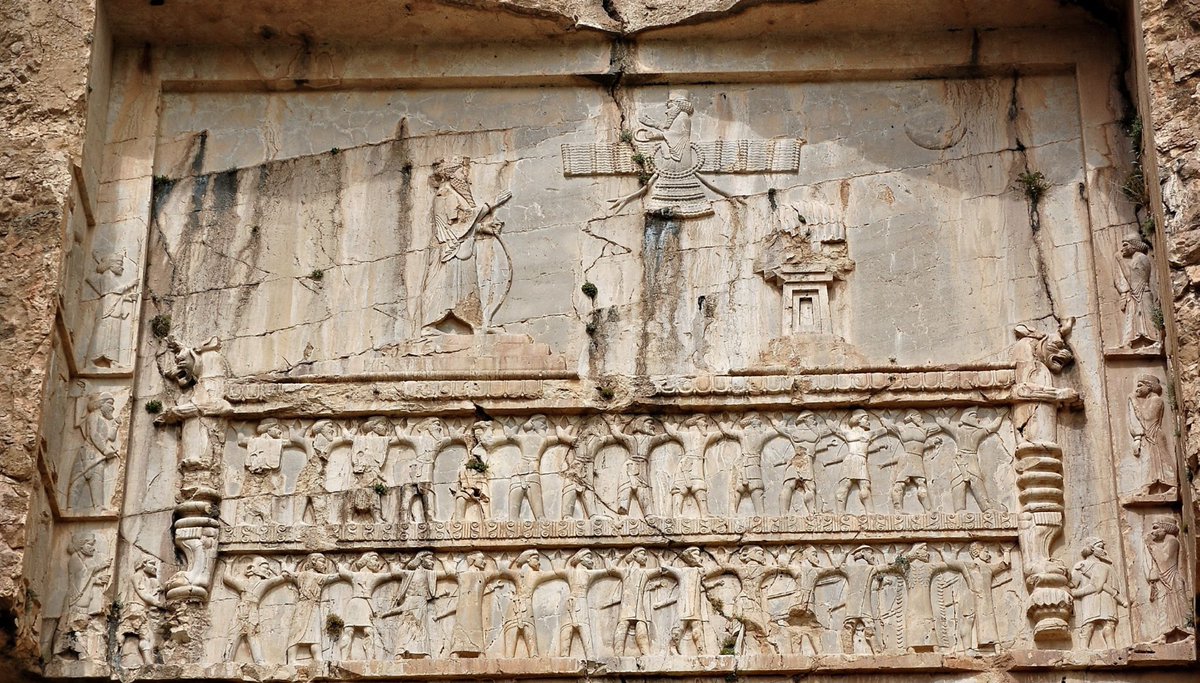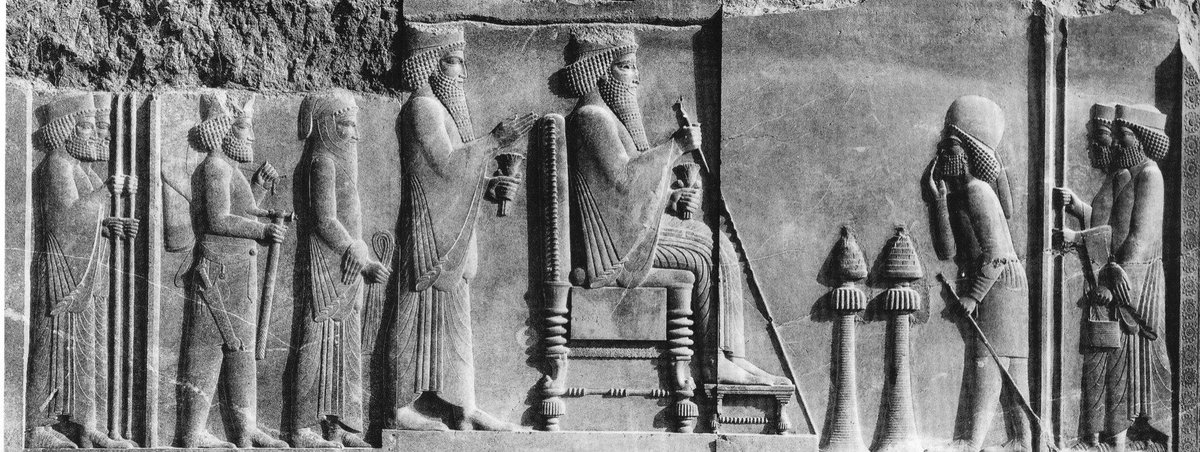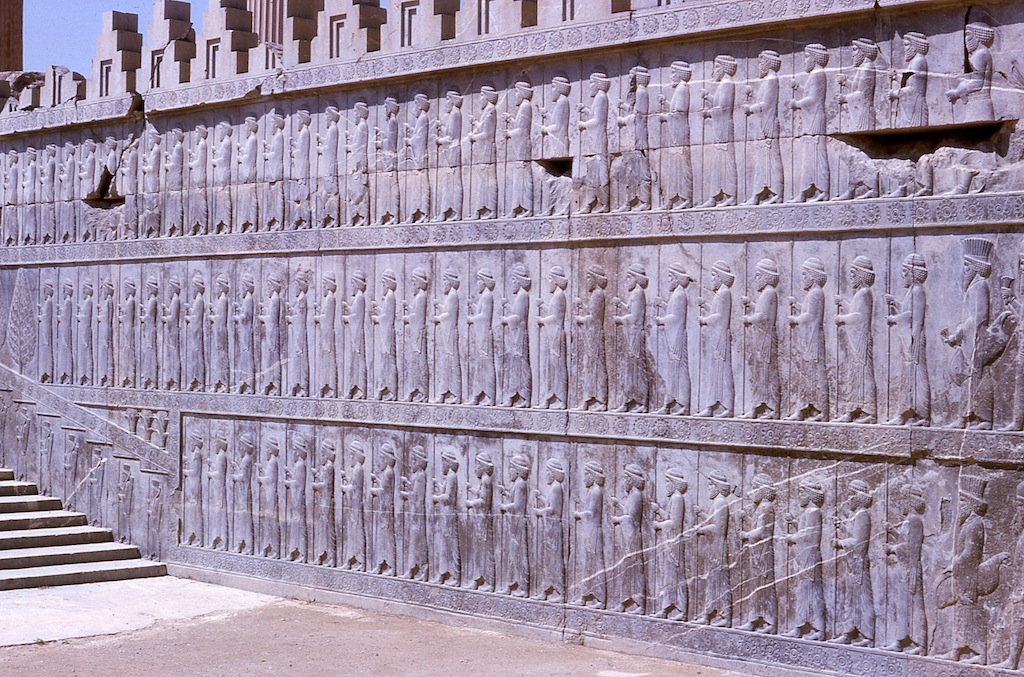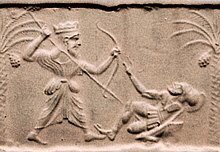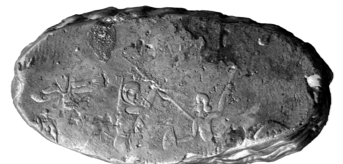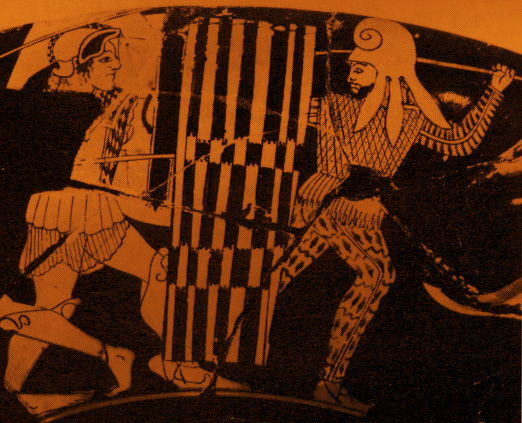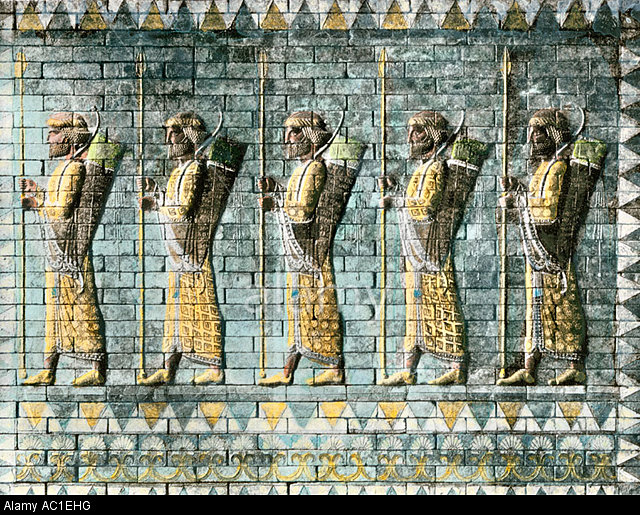The myth of Thermopylai and the Greek resistance is built on some... strange ideas about the Persians and their armies.
Don& #39;t worry though, @reeshistory and I are here to clear some stuff up.
1/many
Don& #39;t worry though, @reeshistory and I are here to clear some stuff up.
1/many
Our view on Persia is weird. It was the largest empire the world had ever seen. Its king claimed to rule the whole planet. But our best sources for it are Greek.
Imagine if we knew Rome mostly through clay tablets from Babylon.
2/
Imagine if we knew Rome mostly through clay tablets from Babylon.
2/
But for the Greeks this was not some foreboding new presence in the East. By 480 they& #39;d seen Great Kings come and go. Greeks had been living under Persian rule for generations. Mingling, learning the language, trading goods, skills and ideas.
With that in mind... 3/
With that in mind... 3/
Myth 1: "Oriental despotism". The Great King was a cruel tyrant, his subjects were slaves.
Greeks liked to say this. But no ancient ruler had absolute power. Empire was a complex game of give-and-take. There were degrees of autonomy. I& #39;m so boring right now.
4/
Greeks liked to say this. But no ancient ruler had absolute power. Empire was a complex game of give-and-take. There were degrees of autonomy. I& #39;m so boring right now.
4/
Related myth 2: the Persians were coming for Greek democracy!
Nope. Not at all. Even Herodotos says no to this.
When the Ionians rebelled and set up democracies, the Persians crushed them, destroyed their armies, razed their walls... and let them keep their democracies. 5/
Nope. Not at all. Even Herodotos says no to this.
When the Ionians rebelled and set up democracies, the Persians crushed them, destroyed their armies, razed their walls... and let them keep their democracies. 5/
What they wanted was reliable subjects. People who paid their tribute, served when called, and kept quiet.
Turns out Greeks did this if you let them have assemblies and stuff.
It ain& #39;t no thing to the King of Kings.
6/
Turns out Greeks did this if you let them have assemblies and stuff.
It ain& #39;t no thing to the King of Kings.
6/
Myth 3: Persian rule was harsh and oppressive.
Probably not. For most subjects it just meant annual tribute and military service. A terrible burden? When the Athenians took Ionia, they left the tribute the same. When Alexander took Ionia... he left the tribute the same.
7/
Probably not. For most subjects it just meant annual tribute and military service. A terrible burden? When the Athenians took Ionia, they left the tribute the same. When Alexander took Ionia... he left the tribute the same.
7/
Myth 4: The Persian army was a vast mob of flimsy light-armed barbarians, driven by the whip.
Bit tricky to sell this one to the Egyptians and Babylonians whose rebellions they had just crushed.
Persia was an all-conquering superpower. 8/
Bit tricky to sell this one to the Egyptians and Babylonians whose rebellions they had just crushed.
Persia was an all-conquering superpower. 8/
It& #39;s easy to forget that, until Marathon, Greeks usually lost against Persians on land. The Ionian rebels were obliterated time and again. Even at Marathon the Athenian centre was overrun. Hoplites schmoplites.
Anyway, let& #39;s break it down: 10/
Anyway, let& #39;s break it down: 10/
An army of slaves? Nah. Most troops were local militia, required to fill out the army of their hegemon. Same as the Peloponnesians serving Sparta.
The Persian cavalry was a landed elite. Their core infantry were professional soldiers. 11/
The Persian cavalry was a landed elite. Their core infantry were professional soldiers. 11/
A million-man mob? Herodotos works hard to prove his claim, but even he wonders how they could feed so many. No one has a final answer here, but even the full royal display army of 480 won& #39;t have been that big. The next year, they left only its effective core to finish up. 12/
Light-armed and flimsy? Persians were not just archers in trousers. Scale or linen armour; spears, swords, axes. They did not skirmish away from a fight. Besides, there were many other close combat specialists in Xerxes& #39; army: Egyptians, Phoenicians, Assyrians, Greeks, etc. 13/
Inexperienced warriors? Many of Xerxes& #39; troops would be veterans of his early campaigns. Noble Persians trained from boyhood. At sea, his Phoenicians were unrivalled masters of trireme warfare.
The Greeks were green though. Leonidas& #39; first time as general. 14/
The Greeks were green though. Leonidas& #39; first time as general. 14/
Also, needless to say: the Immortals were not mask-wearing ninja monsters. 10,000 sons of the Persian elite, well-drilled infantry all-rounders with spear and bow, the most professional fighting force in the world. 1,000 picked Apple-bearers guarded the Great King. 15/
Finally, myth 5 (were we counting?): Xerxes. Hubristic tyrant? Idiot crybaby?
Understandably, the Greeks were really on his case. But even in Herodotos he listens to good advice. Succeeds against early challenges. Plan at Thermopylai/Artemision shows him a shrewd commander. 16/
Understandably, the Greeks were really on his case. But even in Herodotos he listens to good advice. Succeeds against early challenges. Plan at Thermopylai/Artemision shows him a shrewd commander. 16/
In his own royal inscription, of course, he never failed. All was set right. But did he fail? Even Greeks knew: he had won on land (at Thermopylai) and captured and razed the enemy& #39;s biggest city (Athens). What more could a Great King do to prove his worth?
/fin
/fin
We would be stuck in hellenocentric myths if not for Amélie Kuhrt, @pierre_briant and more recently @lloydllewj, @emmabridges, @vastarchive & many others (please tag them below!)
Also check out @iranicaonline, http://livius.org"> http://livius.org , http://bookandsword.com"> http://bookandsword.com , @HistoryofPersia
Also check out @iranicaonline, http://livius.org"> http://livius.org , http://bookandsword.com"> http://bookandsword.com , @HistoryofPersia
Incidentally, the wonderful @lloydllewj is just kicking off a new vlog series on Persian history and culture so please check that out! https://twitter.com/LloydLlewJ/status/1301090613434122241">https://twitter.com/LloydLlew...
If you enjoyed this thread, also check out the rest of the tweet-a-thon that I wrote with @reeshistory about Xerxes& #39; campaign of 480.
Part I on the battle of Thermopylai: https://twitter.com/Roelkonijn/status/1300070780185739264">https://twitter.com/Roelkonij...
Part I on the battle of Thermopylai: https://twitter.com/Roelkonijn/status/1300070780185739264">https://twitter.com/Roelkonij...
Part II on the battle of Artemision: https://twitter.com/reeshistory/status/1300399259494371328">https://twitter.com/reeshisto...
Part III on Sparta and the Spartan mirage: https://twitter.com/reeshistory/status/1300756042465370112">https://twitter.com/reeshisto...

 Read on Twitter
Read on Twitter